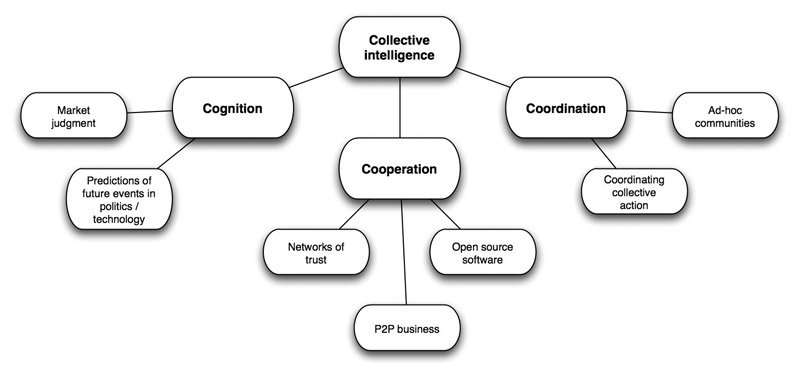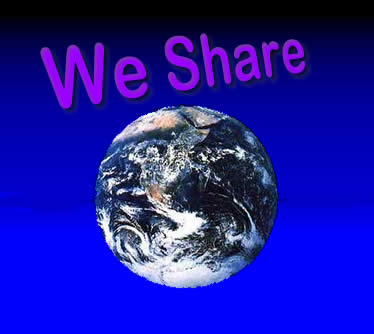Emerging Trends
Welcome to the Educational Trends Section
Social Networks, Sharing and Learning
Growing up digital, many of today's kids have been sharing and collaborating all of their lives. Sites like Facebook and YouTube boast huge communities willing to share everything from the most trivial to the most important of ideas. Today's generation is no longer willing to sit passively and have culture pushed upon them; they are more likely to be producers of culture. They are comfortable working in teams and sharing on social networks. EduCitizenship 2020 sees this social nature and willingness to create partnerships as one of the key trends that will influence learning in the future.
Jane Hart, of the Centre for Learning & Performance technologies who compiles a yearly list of the Top 100 Tools for learning, sees 4 emerging trends in the tools being used in education.
The first she calls "Increasing consumerization of IT." This refers to people using more of their own personal tools rather than institution supplied tools.For example, in her list none of the major Learning management systems (like Blackboard) have prominence or steady position except for the open source Moodle. Her second trend is the merging of learning, working and personal tools. Users are choosing to expand the use of personal tools like Facebook and Twitter into the learning and working environment. Her third trend is that Social tools that facilitate co-production, communication and collaboration predominate. Hart says, "Learning professionals are recognizing the huge value of encouraging participation and interaction of learners in training." Her fourth trend is that personal (informal) learning is under the individual's control. This means that many are using tools like Google, Wikipedia and YouTube rather than traditional sources for informal learning. (Top Tools for Learning: Emerging Trends, October 2010)
See Jane's 2017 Top Tools here
The Horizon Report and Collective Intelligence
The New Media Consortium (NMC) is an organization that works to define and predict trends in education. Every year the organization works with Educause, 300 colleges and universities and an Advisory Board to compile an overview of upcoming technological trends. The Horizon Reports forecast short term and long term trends. The annual Horizon Report "identifies and describes emerging technologies likely to have a large impact on teaching, learning, or creative inquiry on college and university campuses within the next five years. The 2010 Horizon Report is the seventh in the series and is produced as part of an ongoing collaboration between the New Media Consortium (NMC) and the EDUCAUSE Learning Initiative (ELI)," (Horizon Report 2010, Executive Summary)
The 2012 Horizon Report for Higher Education sees mobile apps, and tablets entering the mainstream in a year or less, while learning analytics, and game-based learning in 2-3 and the internet of things and gesured-base computing in 4-5 years.
Download the 2012 Horizon Report
In the video below Alan Levine of NMC talks about the organization and one overarching trend - Collective Intelligence. Because of the explosion of digital media and social networks the potential for collective intelligence has increased.
Don Tapscott and Anthony D. Williams in Wikinomics: How Mass Collaboration Changes Everything suggest that mass collaboration can lead to collective intelligences when these principles are followed:
- Openess
Sharing ideas and intellectual property, allowing others to share ideas and gain significant improvement and scrutiny through collaboration. - Peering
Opening up of resources so other users may modify and develop and maintain openness of future revisions. Peering encourages self-organization – a style of production that works more effectively than hierarchical management. - Sharing
Companies have started to share some ideas while maintaining some degree of control over others, like potential and critical patent rights. Limiting all intellectual property shuts out opportunities, while sharing some expands markets and brings out products faster. - Acting Globally
The advancement in communication technology has prompted the rise of global organizations with lower overhead costs. Widespread internet access creates, global integration, reducing geographical distance and opening new markets, ideas and technology

"In the past you were what you owned. Now you are what you share." (Charles Leadbeater)
In the video below, Charles Leadbeater talks about how the web has become a mass conversation with the potential for mass innovation from shared ideas.
 A culture of sharing will have a large impact on all of the future trends in education.
A culture of sharing will have a large impact on all of the future trends in education.
On the following pages under the section Trends, we will discuss the major trends predicted by of The Horizon Report.
Next up, see Open Access Education and Resources
